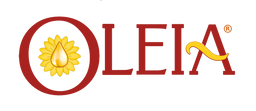Hey there! 👋🏻
Let’s talk about something that hits close to home—and I mean that literally. I come from a huge, close-knit family. Not just the nuclear setup—oh no, we’re talking close cousins, titos, titas, lolas, the works. The kind of family that takes up the whole restaurant or café when we’re out and about. And honestly? It’s the best. 🥰 That warmth, the noise, the constant overlapping conversations, laughter everywhere. This is not just cultural, it’s biological wellness disguised as chismis and shared meals. And oh do we love our chismis. 😂
How Family Time Shapes Our Inner Health
Science agrees: family time is powerful medicine. According to a 2023 study by Dongxu Li and Xi Guo, the more time parents spend with their children (both daily and leisurely) the higher the children’s sense of well-being. It’s not about extravagant bonding trips; it’s about the simple, consistent presence of parents. 👨👩👧👦 Playing, eating together, or even doing chores side by side all make a measurable difference in a child’s happiness and emotional resilience.
The data says it straight: life and leisure time with Mom and Dad boosts well-being (coefficient 0.1020, p < 0.01). Fathers who spend educational time (helping with homework, talking about goals) leave lasting emotional impact.
In other words: the most underrated health supplement in any Filipino home (well…in any home really) might just be a shared meal together—may it be breakfast, lunch, dinner, or merienda. 🥗
The Science Behind “Close Family Ties”
It’s no secret we Filipinos love our extended families. We live, breathe, text daily in our GCs. And psychology says there’s something deeply healthy about that. ❣️
Research by Qianbao Tan and colleagues found that the closer the blood relationship (and the more frequent the social interaction) the more we psychologically overlap with our relatives. Meaning, we start processing our loved ones’ experiences almost as if they were our own. This self-other overlap strengthens empathy, emotional regulation, and even perspective-taking.
So when our cousin’s heartbreak makes us cry too, or when we instinctively know when our sibling’s “I’m fine” means they’re not, it’s connection. It’s science. 💫
Oleia and Family
In Filipino homes, care has always been hands-on. We grew up with our moms’ hilot, our lolas’ healing oils, and those familiar scents that meant comfort was coming. That gentle touch has always been part of how we love. 💆🏻
Oleia feels like the modern continuation of that. Not only was it made from a daughter’s love for her father, it carries the same warmth, the same healing touch, just made for this generation that’s always on the go. Whether it’s easing a parent’s tired shoulders or calming a child’s growing pains, it’s how we keep the old ways of caring alive—just in a bottle we can reach for anytime.
We can’t bottle family, but we can carry the same warmth in every drop. ❤️
Show me your bottle and I’ll show you mine. ’Til next time! 👨👩👧👦
xo, L

References:
https://pmc.ncbi.nlm.nih.gov/articles/PMC10106685/
https://www.sciencedirect.com/science/article/abs/pii/S0191886914004838


